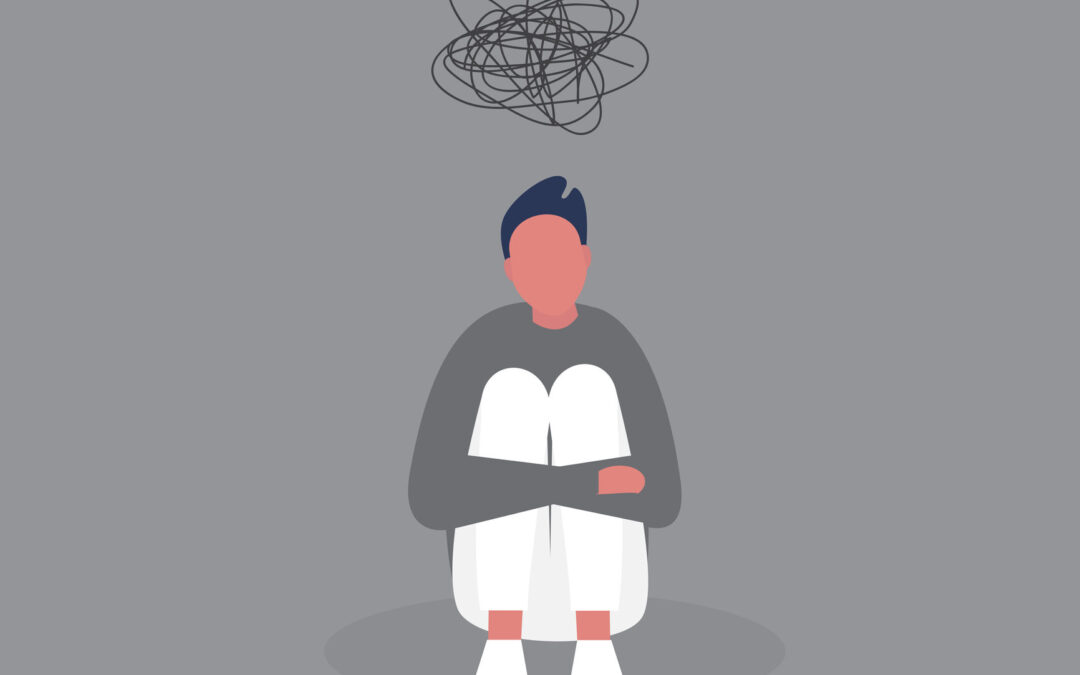Social Anxiety Disorder (SAD), also known as Social Phobia, is a prevalent mental health condition characterized by an intense fear of social situations and interactions.
Individuals with social anxiety often experience overwhelming distress and anxiety in social settings, leading to avoidance behaviors that significantly impair their daily functioning and quality of life.
In this comprehensive guide, we delve into the complexities of social anxiety disorder, exploring its symptoms, causes, impact, and available treatment options.
Symptoms of Social Anxiety Disorder
The symptoms of social anxiety disorder can manifest in various ways and may differ from person to person. However, common signs and symptoms include:
Intense Fear of Judgment
Individuals with social anxiety fear being judged, criticized, or humiliated by others in social situations. They may worry excessively about embarrassing themselves or saying something foolish, leading to avoidance of social gatherings or public speaking engagements.
Physical Symptoms
Social anxiety often triggers physical symptoms such as sweating, trembling, rapid heartbeat, nausea, dizziness, and blushing. These symptoms can be distressing and may exacerbate the individual’s anxiety in social situations.
Avoidance Behaviors
To cope with their anxiety, individuals with social anxiety may avoid social situations altogether or endure them with extreme discomfort. They may avoid making eye contact, speaking in public, attending parties or social events, and engaging in activities that involve meeting new people.
Negative Self-Perception
Socially anxious individuals often have low self-esteem and negative self-perceptions. They may believe that others are constantly scrutinizing and judging them, leading to feelings of inadequacy and self-doubt.
Interpersonal Difficulties
Social anxiety can interfere with interpersonal relationships, making it challenging for individuals to form new friendships, maintain existing relationships, or assert themselves in social settings. This can contribute to feelings of loneliness and isolation.
Causes of Social Anxiety Disorder
The exact cause of social anxiety disorder is complex and multifaceted, involving a combination of genetic, biological, psychological, and environmental factors. Some potential causes and risk factors include:
Genetic Predisposition – Research suggests that genetics play a role in predisposing individuals to social anxiety disorder. People with a family history of anxiety disorders may be more likely to develop social anxiety themselves.
Brain Chemistry – Imbalances in neurotransmitters such as serotonin and dopamine, which regulate mood and anxiety, may contribute to the development of social anxiety disorder. Differences in brain structure and function, particularly in areas associated with fear and emotional processing, have also been observed in individuals with social anxiety.
Environmental Factors – Early childhood experiences, such as traumatic events or negative social interactions, can contribute to the development of social anxiety disorder. Bullying, teasing, or rejection by peers during formative years may increase vulnerability to social anxiety later in life.
Learned Behavior – Social anxiety can also be learned through modeling or conditioning. Growing up in an environment where social interactions are perceived as threatening or where avoidance behaviors are reinforced can contribute to the development of social anxiety disorder.
Personality Traits – Certain personality traits, such as shyness, introversion, or perfectionism, may increase the risk of developing social anxiety disorder. Individuals who are overly self-critical or who have a heightened sensitivity to criticism may be more prone to social anxiety.
Impact of Social Anxiety Disorder
Social anxiety disorder can have a profound impact on various aspects of an individual’s life, affecting their emotional well-being, social relationships, academic or professional performance, and overall quality of life. Some common consequences of social anxiety include:
Impaired Social Functioning
Socially anxious individuals may struggle to form meaningful connections or engage in social activities, leading to feelings of loneliness and isolation. This can contribute to a cycle of avoidance and further exacerbate their anxiety.
Academic or Occupational Impairment
Social anxiety can interfere with academic performance, job interviews, presentations, and other professional responsibilities. Fear of judgment or criticism may prevent individuals from pursuing opportunities for advancement or taking on leadership roles.
Negative Impact on Health
Chronic stress and anxiety associated with social anxiety disorder can take a toll on physical health, leading to problems such as insomnia, gastrointestinal issues, and weakened immune function. Untreated social anxiety may also increase the risk of developing comorbid mental health conditions such as depression or substance abuse disorders.
Reduced Quality of Life
Social anxiety can significantly diminish an individual’s quality of life, affecting their ability to enjoy social activities, pursue personal interests, or achieve their goals. The constant fear and avoidance associated with social anxiety can lead to feelings of frustration, despair, and hopelessness.
Financial Burden
In severe cases, social anxiety disorder may result in financial burden due to missed opportunities for career advancement, academic underachievement, or expenses related to seeking treatment or therapy.
Treatment Options for Social Anxiety Disorder
Fortunately, social anxiety disorder is a highly treatable condition, and several effective interventions are available to help individuals manage their symptoms and improve their quality of life. Treatment approaches for social anxiety disorder may include:
- Cognitive-Behavioral Therapy (CBT) – CBT is a widely used therapeutic approach for social anxiety disorder, focusing on identifying and challenging negative thought patterns and beliefs related to social situations. Through cognitive restructuring and exposure therapy, individuals learn coping strategies to manage their anxiety and gradually confront feared situations.
- Medication– Selective serotonin reuptake inhibitors (SSRIs) and serotonin-norepinephrine reuptake inhibitors (SNRIs) are commonly prescribed medications for social anxiety disorder. These medications help alleviate symptoms of anxiety and depression by regulating neurotransmitter levels in the brain. Beta-blockers may also be prescribed to manage physical symptoms such as rapid heartbeat and trembling.
- Mindfulness and Relaxation Techniques: Mindfulness-based interventions, relaxation techniques, and stress-reduction strategies can help individuals with social anxiety learn to manage their symptoms and cultivate a greater sense of calm and self-awareness.
- Social Skills Training: Social skills training programs can help individuals improve their communication skills, assertiveness, and self-confidence in social situations. Role-playing exercises and behavioral rehearsal techniques are often used to practice social interactions in a supportive environment.
- Support Groups: Joining a support group or participating in group therapy can provide individuals with social anxiety disorder with a sense of belonging and validation. Sharing experiences and coping strategies with others who understand their struggles can foster a sense of community and reduce feelings of isolation.
Conclusion
Social anxiety disorder is a debilitating mental health condition that affects millions of people worldwide, causing significant distress and impairment in various areas of life.
However, with proper diagnosis and treatment, individuals with social anxiety can learn to manage their symptoms effectively and lead fulfilling lives.
By raising awareness, reducing stigma, and promoting access to mental health resources, we can create a more supportive and inclusive society for those affected by social anxiety disorder. Remember, seeking help is not a sign of weakness but a courageous step towards healing and recovery.

